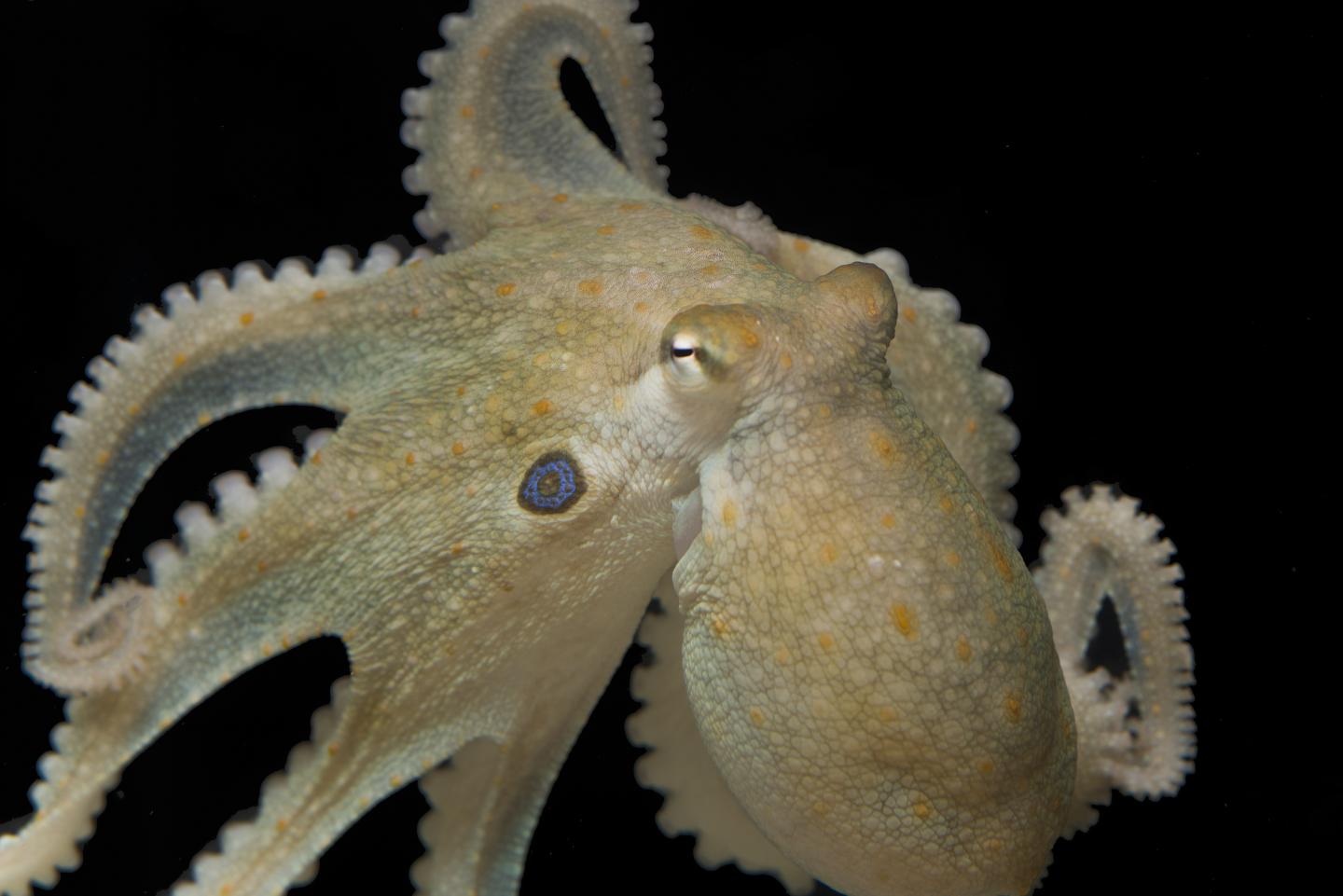Scientists Get Octopuses High on Ecstasy, Making the Creatures Very Friendly

Why would you ever think of giving ecstasy to an animal? Scientists did it in the name of science, of course. It might sound odd, but the study published in the journal Current Biology contained interesting information.
Even though humans and octopuses have different brains, the reaction to the drug MDMA is surprisingly similar.
Octopuses are solitary animals, preferring to stay away from their own kind or just kill and eat the ones that get too close.
However, when given an MDMA bath, seven male and female California two-spot octopuses (Octopus bimaculoides) got really jolly and ready for a hug.
Scientists dunked them for a few minutes in the water laced with the drug and then placed in a tank that contained a toy and a sober male octopus.
Euphoria kicked in, and the “high” creatures felt happy, started stroking each other, twirling in the tank. They also frequently exposed their beaks – which is used for eating and mating.
An Extraordinary Level of Conservation
Interestingly enough, the friendly and touchy feelings are similar to what we see in humans.
MDMA makes the brain release more serotonin neurotransmitter, which sends electrical impulses to make people feel high and fuzzy. It seems that the same thing happened with the cephalopods.
Eric Edsinger, the co-author of the study and a researcher at the Marine Biological Laboratory (Chicago, USA), was involved in sequencing the genome of this species of octopus, finding that their brain contains the proteins that allow serotonin uptake:
“The binding site for MDMA and serotonin in the ion transporter is 100 percent conserved between octopus and human. That is an extraordinary level of conservation. That means, pharmacologically, we could predict MDMA should work in octopus in the way it does in humans. It looks like it did.”
Human and octopus genome was separated more than 500 million years ago, but it shows that a gene sequence was conserved for a very long time.
A neuroscientist researcher at John Hopkins University, Maryland, Dr. Gul Dolen, who was also part of the study said that they did this test to see if MDMA can be used in therapeutic purposes, adding that:
“We had no idea what to expect – and were definitely surprised and intrigued from the start.”
0 comments